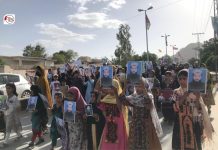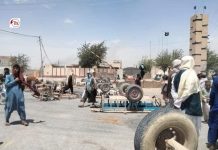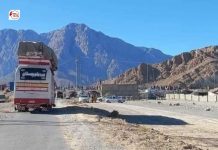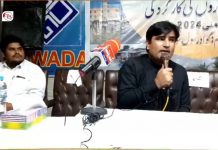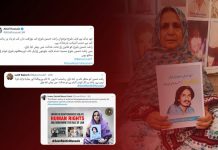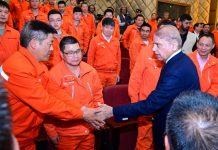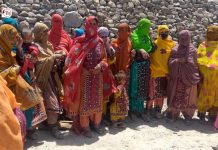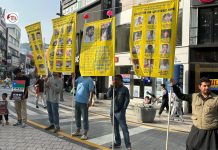The Pakistani Prime Minister Imran Khan visited Noshki after the recent attacks by the armed groups on the headquarters of the Frontier Corps in the city. Khan analysed the security situation in Noshki during his one-day visit, especially the attack on the FC headquarters.
Imran Khan on Tuesday said that foreign elements were behind prevailing unrest in Balochistan. The PM and Chief of Army Staff (COAS) General Qamar Bajwa arrived in Noshki town of Balochistan, to spend the day with troops after the twin attacks on FC camps in Panjgur and Noshki districts of Balochistan the other day.
The Pakistani Premier announced a 15 percent increase in the salaries of paramilitary forces, FC and Rangers. “Nation standby you”, he told the troops in Noshki. He said that Allah will specially reward those who sacrifice their lives for the country and nation.
Other Pakistani ministers have also visited Noshki after the attack. Balochistan Chief Minister Quddus Bizenjo and Chairman of the Pakistani Senate, Sadiq Sanjrani visited the FC headquarters in Noshki and placed a wreath at the attack site, on Monday. The two ministers were briefed by the provincial FC commandment on the attack and its aftermath.
The visits of the Pakistani authorities come after the twin attacks at the FC headquarters in Noshki and Panjgur. The attacks were carried out by the Baloch Liberation Army’s Majeed Brigade, a unit specializing in self-sacrificing attacks. Nine attackers stormed the FC camp in Noshki and allegedly killed over 100 soldiers of the Pakistani forces in a battle that lasted for more than a day. The camp was destroyed in the attack – post-battle photos of the camp show crumbled walls, burnt vehicles and buildings that bear unmistakable signs of intense fighting.
The attack in Panjgur lasted for more than 70 hours – the seven attackers allegedly killed over 75 soldiers of the Pakistani security forces. Despite summoning over 200 combat-trained SSG commandoes and bombarding the camp with military choppers, the Pakistani forces failed to dislodge the attackers ensconced inside. The attackers reportedly shot down a helicopter and a military drone in the attack. At last, all the attackers were killed after 70 hours and Pakistani forces took the control back of their camps.
BLA is an armed group, fighting for the “independence” of Balochistan from Pakistan. It has carried out massive attacks on Pakistani forces and Chinese engineers in the past.
Prime Minister Imran Khan on his visit said that present government has launched the biggest project of Karachi to Chaman highway to reduce the suffering of the people and improve life here. He said that Balochistan covers half of the country in terms of area. “We have decided to spend on the people of Balochistan, FATA, and Gilgit Baltistan”, he announced.
The PM’s announcement of the highway refers to the 813km long N-25 highway, also known as the RCD highway, which is decades old and the main reason of traffic accidents in Balochistan. This road was built more than 30 years ago for small traffic. It now caters for thousands of heavy vehicles every day, which has increased manifolds in last couple of years due to the China Pakistan Economic Corridor related activities. It is currently the most dangerous road of Balochistan, but also the most frequented. However, to this date it remains as a single carriageway that is used by commercial lorries, transport coaches and the private users alike. Among local Baloch population, this road is called the “killer road”, as it has taken thousands of lives.
It is to mention that currently it is the fifth insurgency underway in Balochistan, which started more than 15 years ago. Despite Balochistan’s vast natural wealth, it is desperately poor – barely 25% of the population is literate (the national average is 47%), around 30% are unemployed and just 7% have access to tap water. And while Balochistan provides one-third of Pakistan’s natural gas, only a handful of towns are hooked up to the supply grid. Balochistan holds one of the largest gold mines in the world, coal mines and numerous mineral resources as well.











